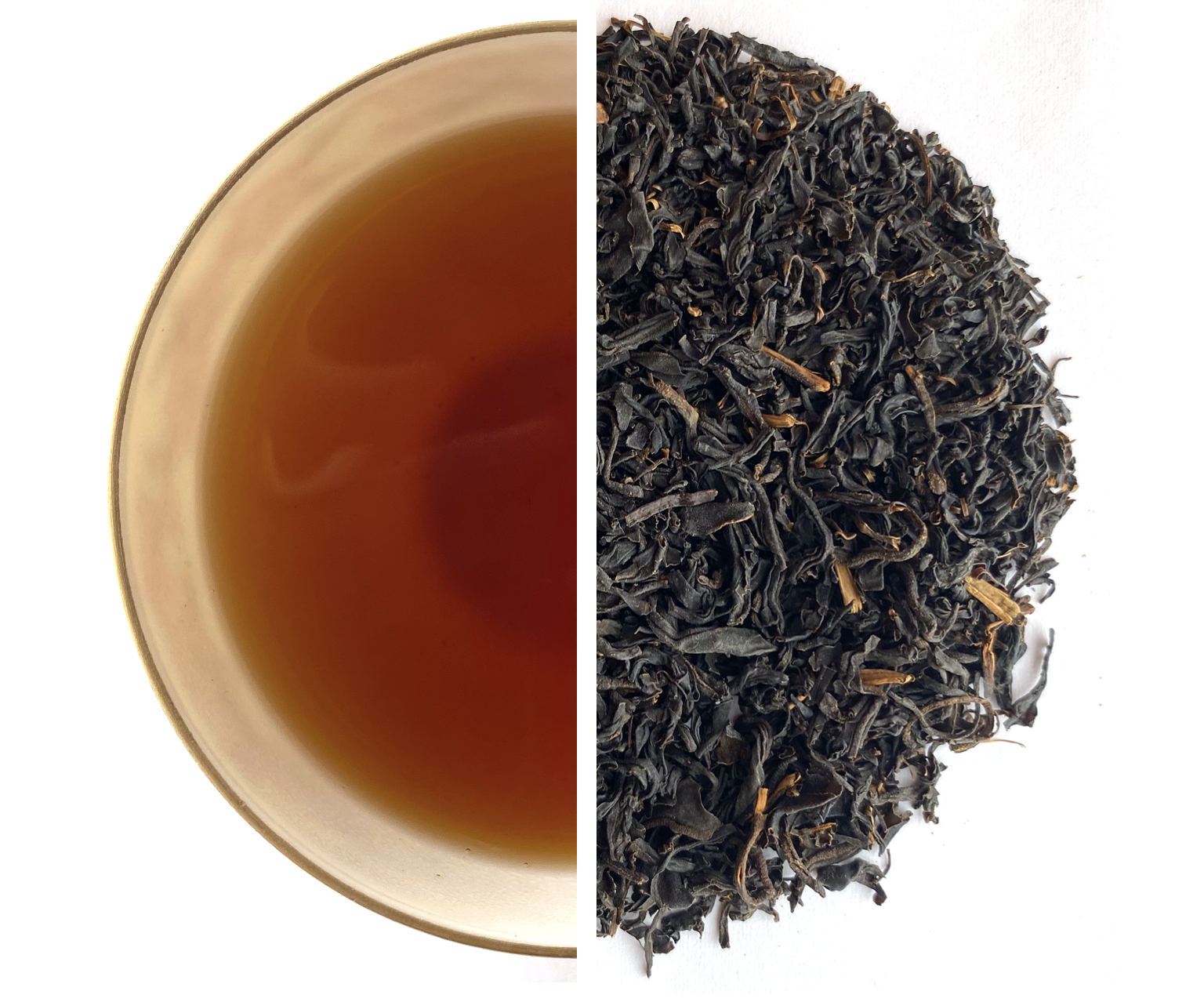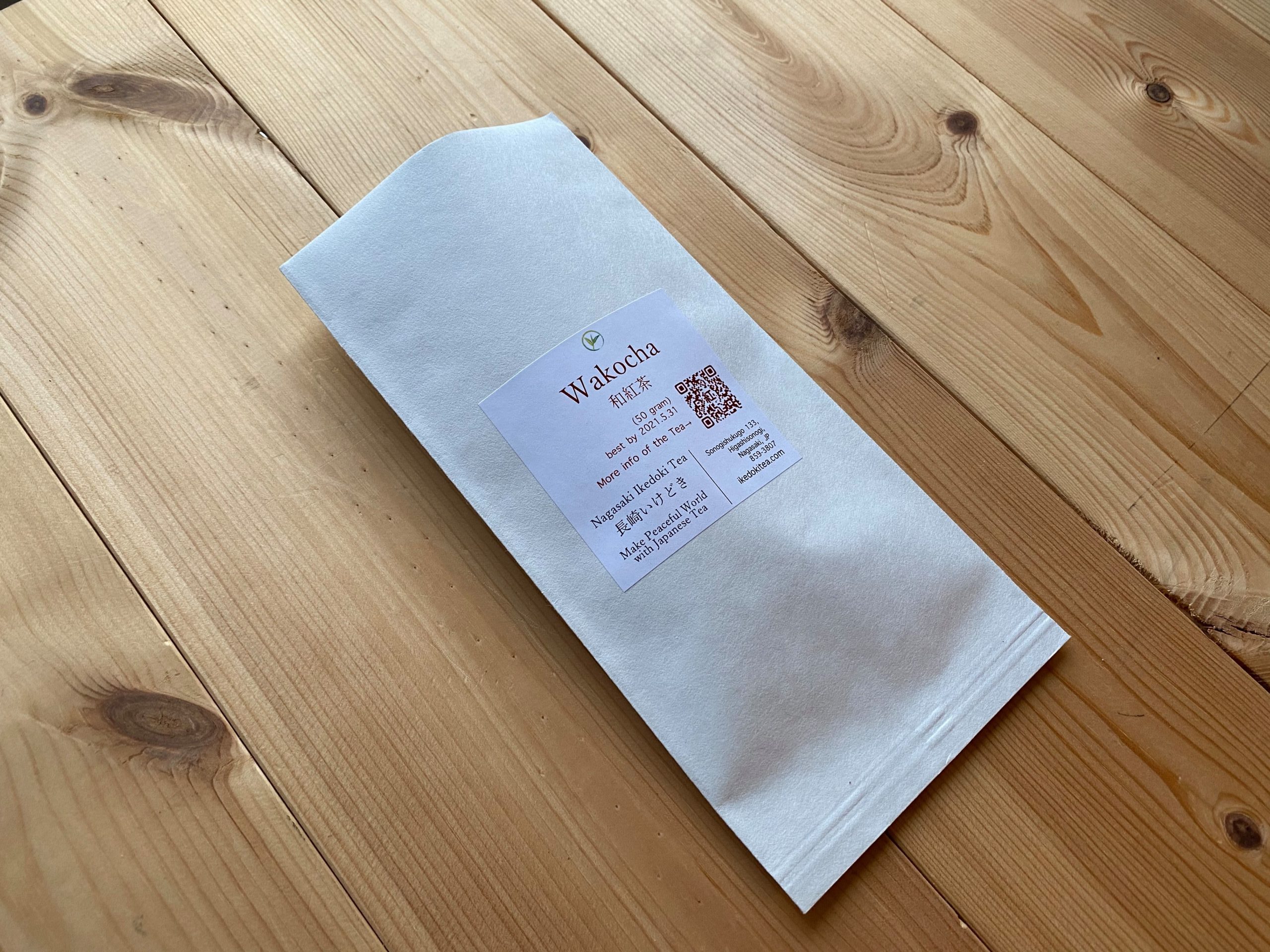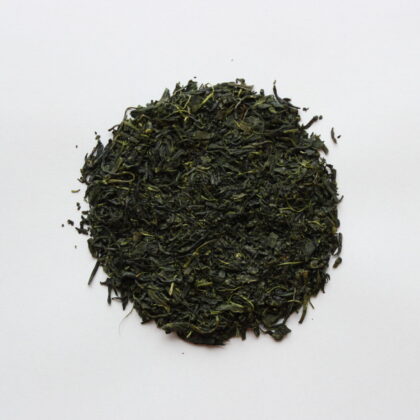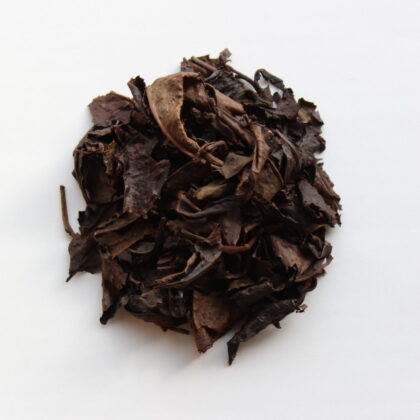Wakōcha (和紅茶) – Ikeda Chaen, 100g
¥1,200
Wakōcha is Japanese black tea. It is also often spelled wakoucha or wakocha.
In other countries, black tea is often drunk with sugar and milk or with lemon.
Wakōcha, though, can be drunk straight without sugar and milk or lemon.
The largest volume of black tea is made in more southern counties closer to the equator, which means the tea leaves are exposed stronger sunshine. This causes the tea trees to produce more Catechins, which result in a more astringent or sometimes bitter taste that mixes well with sugar and milk. Also the variety of tea tree is different as many black teas are created from the Assamica (or Indian) variety, whereas Wakōcha is made from the Sinensis (or China) variety. Basically the Assamica variety results in a stronger, more robust flavoured tea.
Wakōcha will break your standard of black tea if you are used to drinking Indian, Sri Lankan or African black teas.
This Wakōcha is made from the Yabukita variety that is the most common variety in Japan. This Wakōcha has been produced in a Tamaryokucha factory.
This results in the leaves being similarly shaped to Tamaryokucha: curly and winding.
The highlighting feature of the Wakōcha is the fragrance. It has a flowery fragrance like an orchid. The taste is a smooth, light but pleasant bitterness when flowing into your mouth, and then the sweetness comes out.
The liquid colour is changed by the water hardness. It’s interesting to brew the tea with different waters to see the effect the hardness has on the colour and the taste. Black tea can handle harder water a bit better than green tea, which prefers really soft water.




